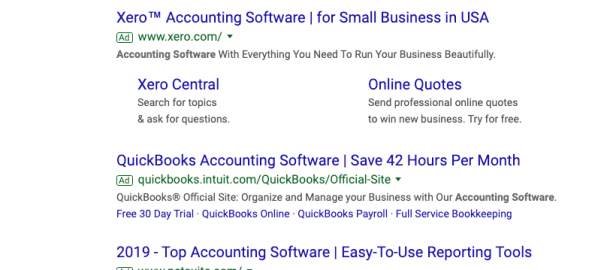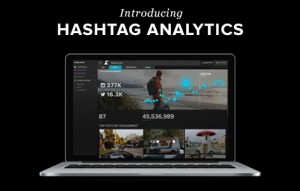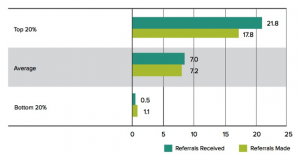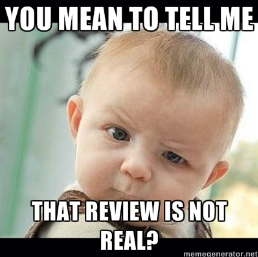
Your company has just launched its new website and now it’s time to generate as much value from it as possible. But how do you do that immediately? Google Ads is the answer!
In this post, I explain how Google Ads (formerly know as AdWords) works and why it makes sense for most B2B companies to integrate into their B2B marketing strategy.
How Search Ads Work
If your firm has never utilized Google Ads before, here is a summary. Google makes most of its revenue off advertising and most advertising is pay-per-click advertising, also known as PPC. These are ads that appear on search engine results pages.
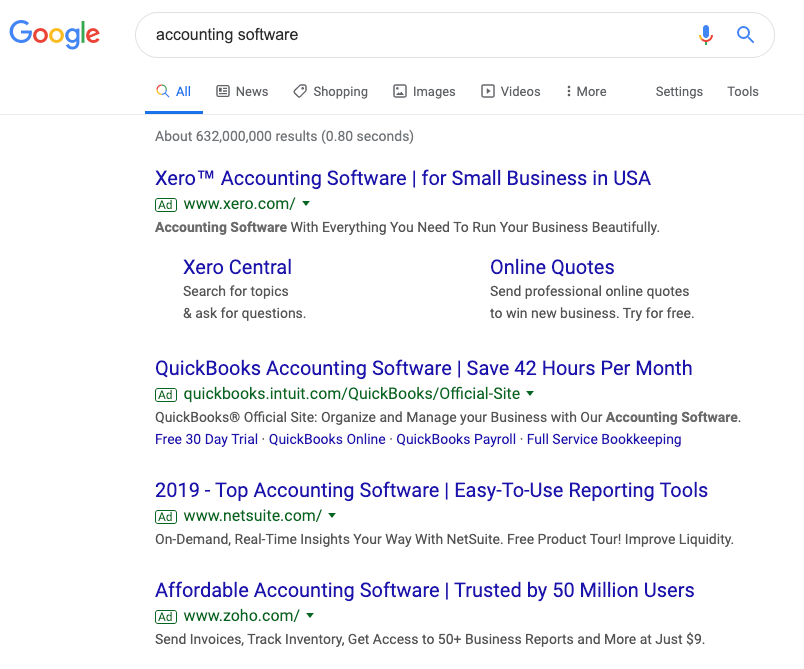
The beauty of Google Ads is that you only pay for advertising when or if a searcher clicks on your ad. Gone are the days of paying for impressions or ad space, with no clue if anyone really engaged with your brand. With Google Ads, you at least know that someone proactively clicked on your ad and visited a landing page on your B2B website.
Working back from your SEO keyword strategy, you identify keywords you want to have your ads show up for, then design text ads that typically show above the organic search results on Google. You bid on these keywords with other competitors and, based on your bid, your ad will show up in a specific order on search engine results. This is real-time bidding so your cost-per-click or CPC is dependent on what other people are bidding for the same keyword.
The click is then directed to a landing page on your company’s B2B website that you determine. That’s the process in a brief summary.
Immediate Qualified Traffic to Your B2B Website
The major benefit of Google Ads is that your B2B website immediately shows up in search engines for your most ideal search queries. With SEO, it can take years to show up for highly competitive keywords on Google’s organic search results. On the other hand, with Google Ads, your website is prominent immediately and your company is driving relevant search traffic right when you turn on the campaign.
This means that your company can generate leads and value from a B2B website in a relatively short period of time—as long as you have implemented a sound Google Ads strategy with an optimal landing page experience.
Hire an Experienced Professional
With a B2B website launch, you may get anxious and want to implement a Google Ads strategy without talking to an expert. We strongly advise that you do not do this. The beauty of Google Ads is that it’s easy to start a campaign, but that does not mean the campaign will be executed well.
I have been told by many companies that they have done Google Ads in the past with little success. I then audit their campaigns and can see why they were not successful. It is important that a B2B company hires a well-versed internal employee or an external agency to manage their Google Ads. This ensures that you are generating a solid ROI from the effort.
Professionals know about keyword targeting, geographical targeting, ad schedules, negative keywords, etc.
Part of an Integrated B2B Marketing Strategy
Google Ads on its own is not a strategy—it’s important to remember that one tactic does not equal a strategy. It should be part of an integrated, multi-tactic lead generation strategy.
At a basic level, a B2B marketing plan should include the following tactics:
- Blogging
- Guest blogging
- Link building
- Email marketing
- Direct mail
- Networking
- Google Ads
- Ad retargeting
A combination of these tactics will ensure your company is generating and nurturing ideal client leads.
Perform Lead Attribution
To ensure that Google Ads are worth the investment, regular lead attribution needs to be performed. A spreadsheet of leads linking to revenue must be continuously updated and monitored. Your firm’s sales department should provide closed-loop feedback to the marketing team on the revenue size of a particular opportunity and if it closed or not. The marketing department can then attribute that revenue to a lead source.
Another positive of Google Ads is that they tend to be more trackable. Unlike organic search leads, all Google Ads leads can be linked to a search query. The search query can then be connected to revenue. You can see which search queries are actually turning into business and which ones are not. This can not only help you refine your Google Ads campaigns but also inform and optimize your ongoing content creation strategy for on-page and off-page SEO.
Digital & Social Articles on Business 2 Community
(39)
Report Post